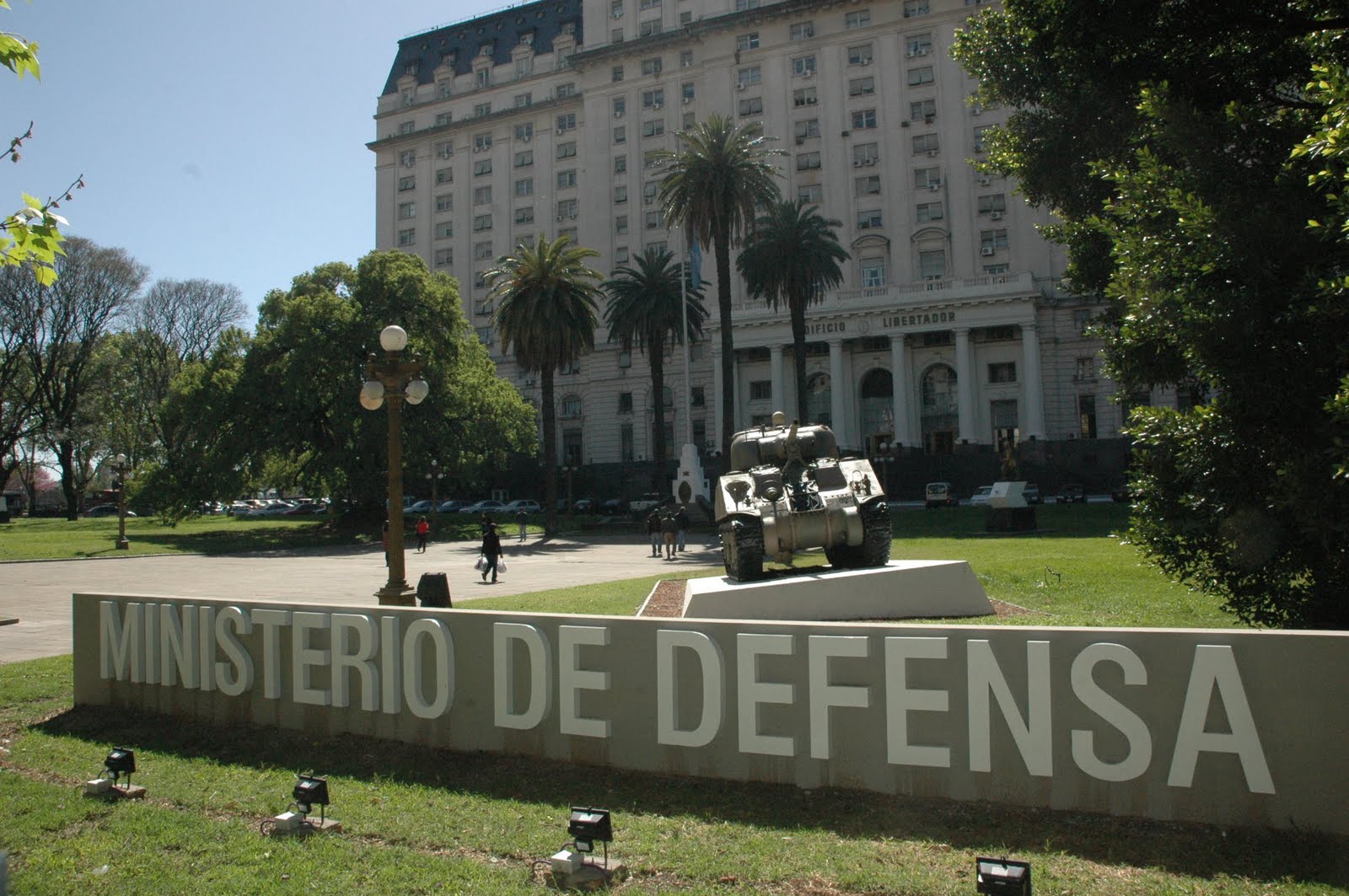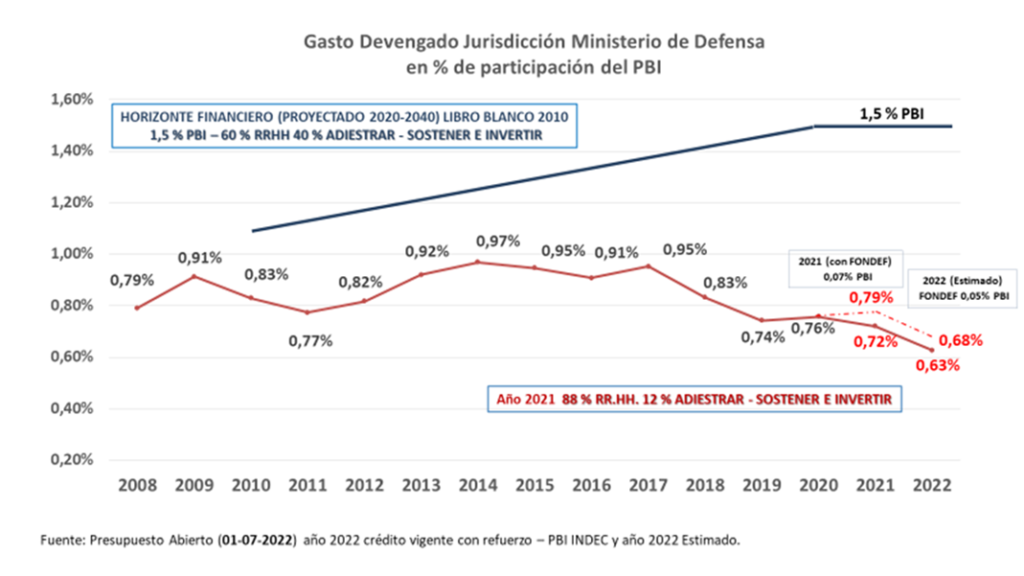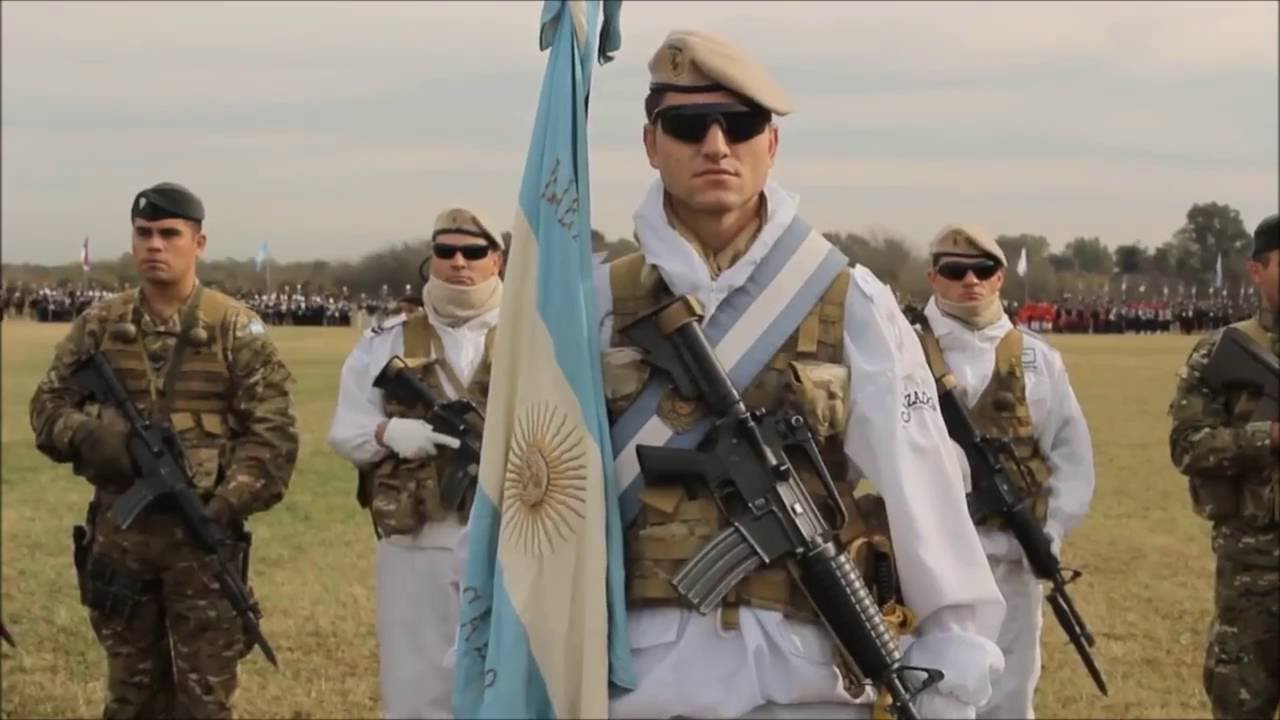By Jorge Alberto Martino and Luis Norberto Martínez Reumann
(Opinion) On Friday, August 26, El Litoral published an article by journalist Bryan J. Mayer entitled: “Military crisis: Argentina is in the most vulnerable situation in history.”
Regardless of what the above article says, it would be worthwhile to analyze the actual budgetary effort that successive governments have made for the Armed Forces, as an essential component of the national defense system, in a period that we would define as short to medium term (2010-2022).
Similarly, we believe it is appropriate to reflect on the different visions of the political actors during this period.

At the presentation of the 2010 Defense White Paper, then President of the Republic Cristina Fernández de Kirchner stated:
“The national defense system, like other strategic sectors of the nation, was overlooked in the 1990s as part of a state reform process that assumed that all public spending was inherently inefficient and could not represent any form of investment: productive, technological, or even social.”
For the defense sector, this meant an increasing distortion between its organization and deployment and the resources allocated to maintain it.
The lack of effective defense governance was typical of this fallacious economic logic.
“We must commit ourselves in the conviction, following the slogan of General José de San Martín, not to raise arms against our people or our Latin American brothers”.
“It is our desire to consolidate a defense that, from its place, contributes to national and regional development, is integrated into society, and contributes with its benefits to a better quality of life for all Argentines.”
In this context, the following questions arise: was this defense policy actually implemented, and was there a real commitment and conviction to achieve it?
To address the two questions, we will analyze the response of the nation-state as reflected in the budgetary allocations provided for in the White Paper compared to those granted to the Armed Forces during the period (2010-2022).
A few years before 2010, the Executive and the Ministry of Defense established the basis for the current strategic planning model.
Consequently, the first planning cycle established the economic guidelines for improving and perfecting Argentina’s defense system.
The financial horizon (tangible orientation) was published as part of a broad debate that produced this book: “By 2020, defense investment should be brought to 1.5% of GDP and maintained until 2040.”
It is obvious that the biggest budget deterioration in defense is concentrated in the last years of the period.
This situation seems to show that the commitment and conviction that underpinned the defense policy announced in the 2010 White Paper, a vision that was far from being realized, has not materialized.
Excluding the FONDEF, the defense budget today amounts to less than 3 pesos for every 100 pesos of the National Public Administration (NPA) budget.

In 2009, this ratio was 4.6 pesos in defense per 100 of the APN and based on the planning at that time, the current level of resources should reach 6 pesos in defense per 100 of the APN.
It should be noted that the national government is the only one that finances the expenditures destined for defense.
Other functions: Education, health, and even security are financed by provincial and municipal governments, regardless of whether private services are in addition to public ones.
Defense is the sole responsibility of the nation-state.
DEVELOPMENT
We could agree that in today’s Argentina, leaders, officials, and citizens, in general, express different opinions on the many issues that affect us as a society and as a nation.
The past, current events, and future predictions flow with absolute freedom of expression in all available media, and coincidences are quickly apparent due to their infrequent occurrence.
“National Constitution”, “Republic”, “Democracy”, “Malvinas, Georgia, and the South Sandwich Islands”, “Antarctica”, “Natural Resources”, etc. are national interests that unite us Argentines in the same conviction.
We can also be assured that we value our national borders, our seacoast, and the so-called “Pampa Azul”.
These fundamental similarities lead us to ask ourselves: why are vital national interests not channeled through a public policy that allows us to consolidate a framework for the positive development of common actions?
The answer is first and foremost: we lack a truly national strategy.
The National Defense Policy Directive (DPDN), while an important institutional policy and legal instrument, is nevertheless a government policy.
National defense is intimately linked to the nation’s survival, so implementing a long-term government policy expressed in a national defense strategy is a priority.
Today, the short-, medium-, and long-term policies and plans of the 2010 White Paper boil down to the need for an immediate response in light of the deteriorating state of the armed forces.
The enactment of the FONDEF law in the defense sector seems to be the most important event of the recent political agreement to strengthen the armed forces.
However, this decree does not allow reversing the current situation.
To this end, it is worth analyzing the statements made by Defense Minister Jorge Taiana during his 2021 balance speech, reported by Télam.
Referring to the budget of this jurisdiction, he said:
“And in a sense, some of the investments or prospects in defense also require important macroeconomic arrangements, that is, access to government credit in some cases for certain capacities is not enough to develop them with FONDEF funds.”

“You can not buy a number of submarines with FONDEF funds because they will not be enough, and Argentina must recover, and that is a political objective, to recover submarine capacity”.
The FONDEF, as an instrument for financing defense investment projects (capital expenditures), is a law that came about as an initiative of the Minister of Defense and MP Agustín Rossi, when he was appointed Minister of Defense in December 2019.
It was known that this proposal would fall far short of meeting the needs of national defense.
If more current resources were not allocated to activities related to the training, operation, and maintenance of the armed forces, the budget for defense jurisdiction would barely reach 1% of GDP in the best-case scenario, while the projections of the 2010 White Paper were 1.5%, with a South American average of 1.6% and a global average of 2.5%.
This situation can be verified by looking at the evolution over the last 20 years of the Ministry of Defense’s consumables credit (current expenditure) as a percentage of APN (graph Consumables of the Ministry of Defense’s jurisdiction 2020-2022).
In October 2021, Congressman Carlos Fernández, Chairman of the Defense Committee, referred to this issue during the seminar “The National Defense Policy Directive” held at the National Defense University UNDEF on the occasion of the closing ceremony:
“I am among those who believe that we must build a state policy of national defense.”
“I am one of the deputies who voted for it, and I am one of those who had to negotiate the approval of the law in December on behalf of the ruling party when Agustín Rossi proposed it, and I am the author of one of the articles of the FONDEF that deals with parliamentary control.”
“Therefore, I share this view and share the instrument that we have chosen to reverse a process of decadence that has lasted for years.”
“One of Argentina’s serious problems is that we have all recognized this situation, we have passed laws, regulations, and procedures, but they have all lapsed because our recurrent crises as a country have left us without funding and resources an essential part of a national defense policy that should be credible in the context of today’s international discussion.”

“If society as a whole does not concede and understand that this is a strategic matter for the state and therefore needs to be resourced, then I say that as a policymaker, I’m not a technician, I’m a policymaker, a long-time political leader of an area.”
“No policy maker will support an increase in the defense budget if the issue is not ingrained in society.”
Analyzing Congressman Fernández’s remarks, one can agree or disagree (depending on one’s point of view) with society’s doubts about national defense.
However, the lack of conviction to strengthen and develop the armed forces within the framework of a state policy does not seem to lie with the citizens, but everything indicates that it is to be found among their leaders and officials.
It would be appropriate to cite the mention made by Colonel (R) Jorge García Mantel in March 2021 about the report prepared by Prosecutor Di Lello:
“In our country, the report prepared in September 2018 by Prosecutor Di Lello as a result of the tragedy of the ARA San Juan, entitled “The Problem of National Defense”, is very valuable and detailed. It is worth recalling some of its conclusions:”
“The economic crisis must not be an obstacle to fulfilling the legal and constitutional mission.”
The first goal is to bring the budget to 1.5% of GDP within five years, which is a reasonable minimum.”
“On the surface, it may seem that this is not the right time to do it, but it doesn’t have to be if you don’t consider the true magnitude of the national defense problem.”
“Argentina faces risks that do not depend on the will of its citizens but on circumstances in the world.”
Society, as an undisputed participant in the national defense system, must truly know the risks that affect the nation’s vital interests.
It must become aware of the loss of resilience caused by the absence of a capable military instrument. The national education system and the media have an essential role to play in this regard.
CONCLUSION
It is obvious that over time the commitment and conviction to achieve a sustainable defense policy has not been achieved, not even with the investments from the FONDEF.
We might consider it beneficial to have an ongoing debate on issues that society recognizes or considers a priority. But today, there is clearly an unstoppable problem that highlights the lack of capabilities of the national defense system.
It is therefore critical to identify the actors responsible for bringing this issue to the forefront of society.
The lack of conviction to strengthen the armed forces within the framework of state policy is undoubtedly the fault of political leaders and representatives first and citizens second.
National defense is a central dilemma for the state’s survival (this is confirmed in numerous international contexts).
Therefore, in our opinion, it is necessary immediately and without delay to invest the resources that have been postponed for a long time to change the state of the armed forces and create an effective and efficient defense system.
But it is also important to think about the professional future of the young people who have joined or want to join the armed forces, all with an absolute vocation to serve, without knowing what future this worrying defense policy offers them.
As mentioned at the outset, national defense is an essential activity of the State, aimed primarily at protecting the vital interests of the nation: the life and liberty of the Argentine people, the national territory and its sovereignty, independence, and self-determination. In light of the above, it seems that defense is undoubtedly a forgotten state policy.
With information from Zona Militar
This post is mirroed and was published first here.

